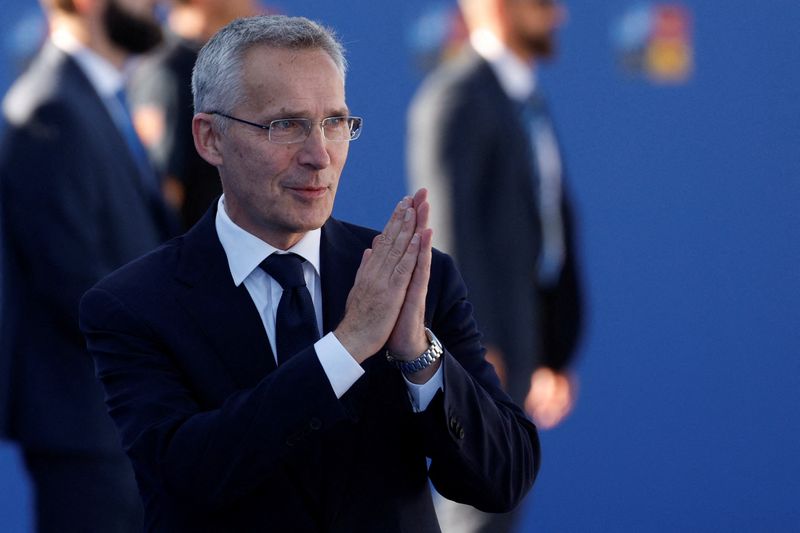By Jacob Gronholt-Pedersen
UTOEYA, Norway (Reuters) - NATO members are working closely with defence companies to ensure Ukraine gets more supplies of weapons and equipment to be prepared for the long haul in its war with Russia, NATO Secretary-General Jens Stoltenberg said on Thursday.
"We are providing a lot of support but we need to do even more and be prepared for the long haul," Stoltenberg told Reuters in an interview.
"Therefore we're also now in close contact and working closely with the defence industry to produce more and to deliver more of different types of ammunition, weapons and capabilities," he said.
In recent months, the United States and other Western countries have begun shipping more advanced conventional weapons systems to Ukraine, including high mobility artillery rocket systems (HIMARS) that offer a longer range and more precision.
Stoltenberg said separately in a speech in Norway to local Labour party activists on Thursday that Russia's invasion of Ukraine, which Moscow calls a "special military operation", had created the most dangerous moment for Europe since World War Two and that Russia could not be allowed to win.
He also accused Russian President Vladimir Putin of engaging in "reckless and dangerous" rhetoric regarding the potential use of nuclear arms.
While NATO members are not directly involved in the war, NATO is closely involved in coordinating the Western response to the invasion.
Stoltenberg reiterated his position that the war would likely end only after negotiations.
"We know most wars end at the negotiating table. We also know that the outcome of those negotiations will be totally dependent on the strength on the battlefield," he told Reuters.
"It's not for me to tell Ukraine what those terms exactly should be. It's for me and NATO to support them to strengthen their hands, so we maximize the likelihood of an acceptable solution," reiterating similar comments he made in June.
The war has led previously non-aligned Finland and Sweden to seek NATO membership, with the request so far ratified by 23 of the 30 member states, including the United States.
"This is the fastest accession protocol in NATO's modern history. I expect the other seven remaining allies to do the same," Stoltenberg said.

He said Turkey's demand for extraditions from Sweden and Finland of terrorism suspects would have to be decided by courts in the two Nordic nations.
"The rule of law applies in Finland and Sweden," Stoltenberg said.